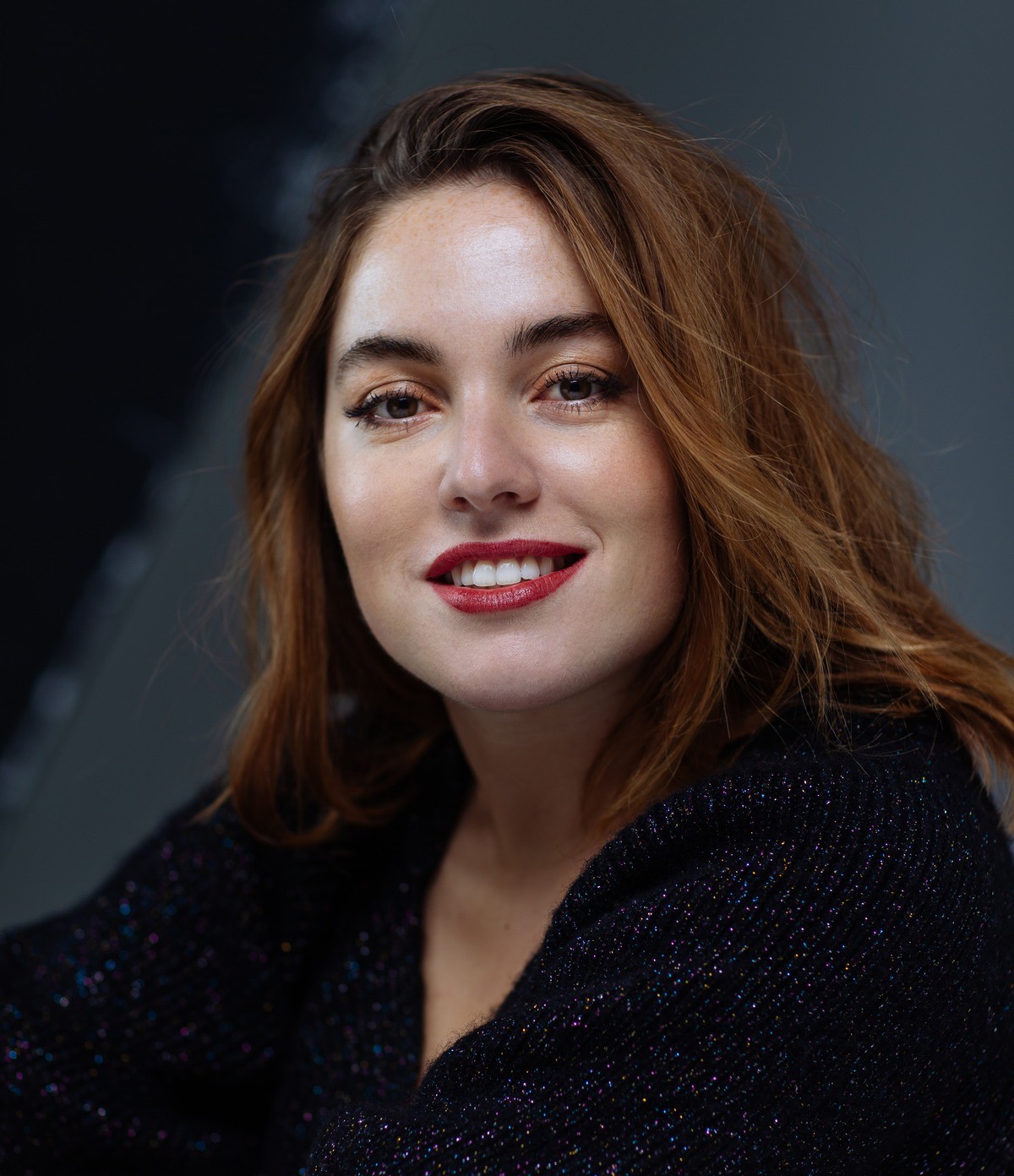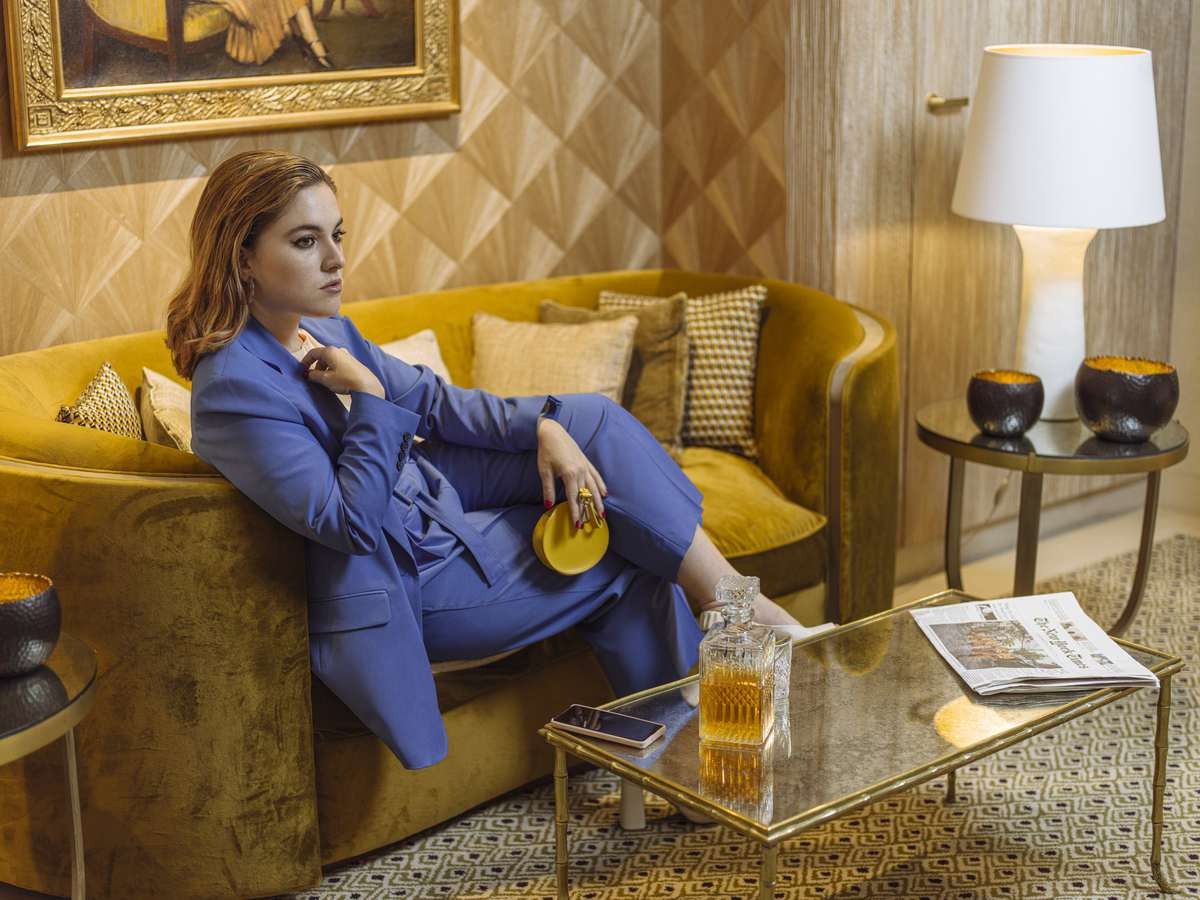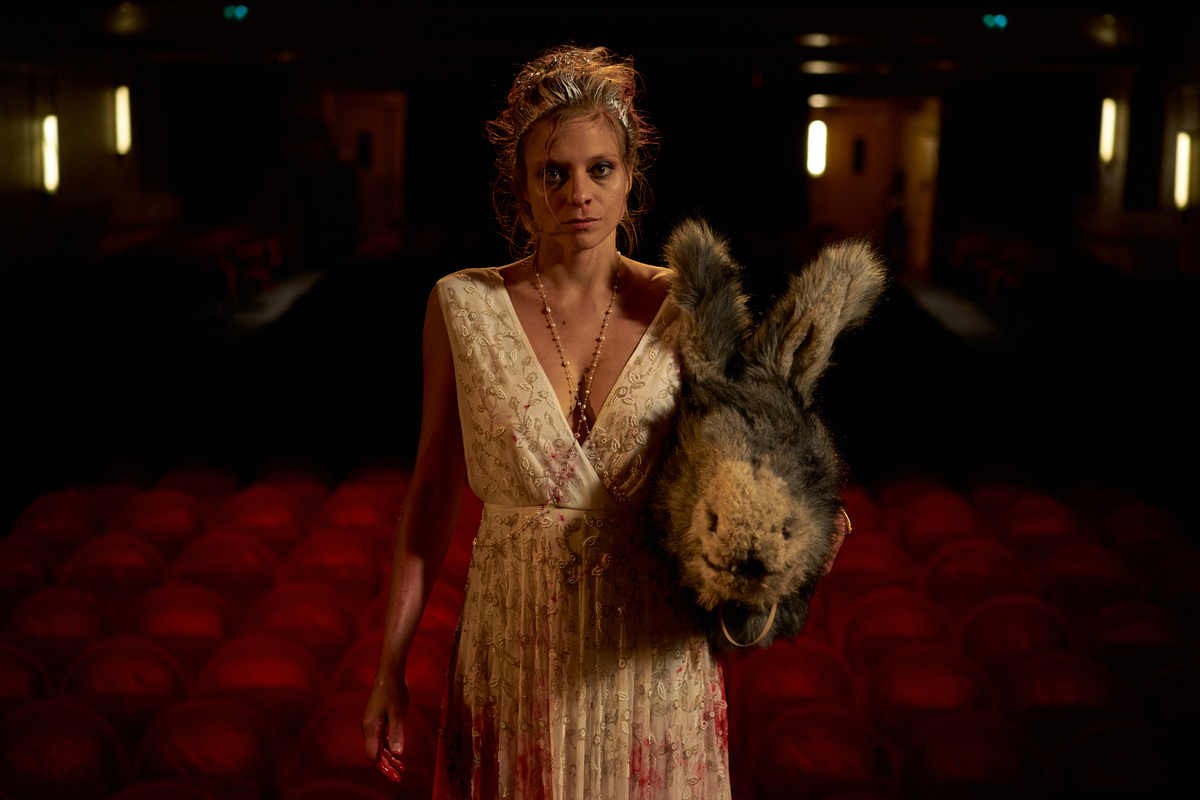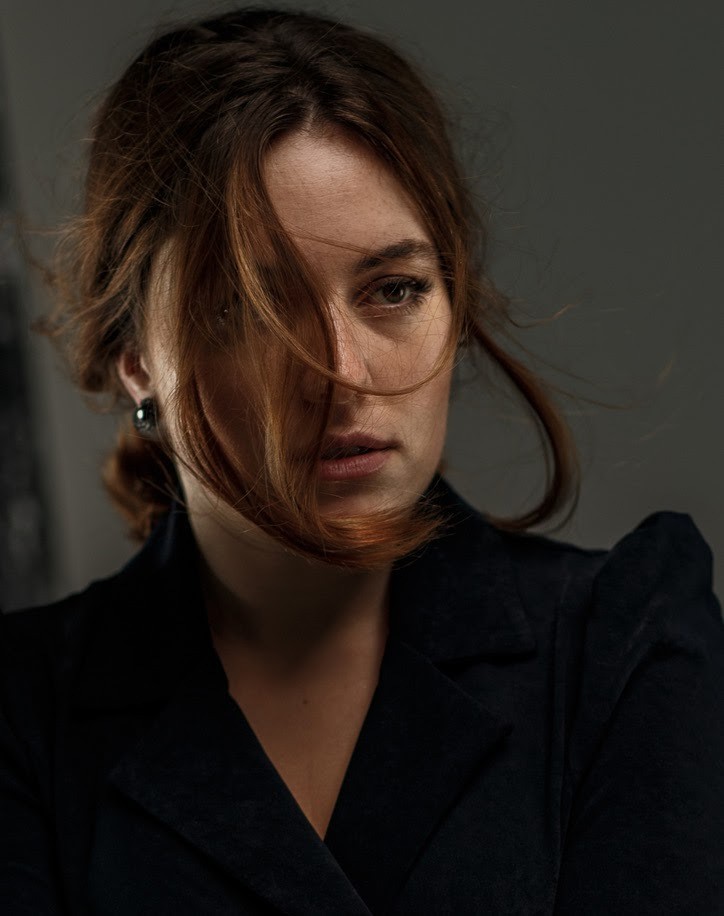
Shared vision: Get to know ‘The Fourth Wall’ producer Victoria Lacoste
Victoria Lacoste is charting a path of her own. The multi-talented producer decided to break away from her family’s fashion brand Lacoste and has generated massive success as the founder of the production company Edelweiss Productions. Lacoste has served as the executive producer on several award-winning shorts, namely the Kelsey Bollig films Asking for a Friend (2019) and The Fourth Wall (2020).
Lacoste is currently producing the short film Silent Lies alongside writer/director Maud Derrien, and a music video for French rapper/actor Joey Starr. She’s also developing the film Nothing But Love, which will be a joint production between Edelweiss Productions and Jean-Marc Barr and Pascal Arnold’s Toloda Productions.
Victoria Lacoste was gracious enough to take time out of her busy schedule and talk to Film Daily about her career, her future plans, and her desire to inspire others.

Tell us about your history in producing. How did you start your journey?
I started production a bit by chance as I come from more of a stage performance background. When I was 19, I moved to the United States where I studied theater in college.
I moved to Los Angeles in 2018 which in some ways, thanks to the ‘Me Too’ movement, was a great time to be there as the industry was just starting to go through a massive shift, structurally and creatively. While I had come for acting, I knew I had something to bring to the table with the kinds of stories I could get behind, production-wise as well.
Your family owns the French fashion brand Lacoste. Was there a conscious effort to pursue a different career path when you were younger?
I don’t think it was a conscious type of mindset, but I know that I never even considered working in the fashion industry. I very much fell in love with the arts – especially theater – at a young age. I knew pretty early on that I felt most at ease when creating and that I would be crushed had I be forced to sit in an office all day long.
Did you pick up any tips from your family’s business that you were able to apply to your own ventures?
Yes: Don’t start a family business. Joke aside, every family has their own struggles. It’s pretty much the nature of families. However, the moment you start adding business into pre-existing grievances, it will be a recipe for disaster.
All in all, it has taught me that with whom you surround yourself is extremely important, perhaps even more than achievements themselves. You can’t do it alone. Even people who are most skilled in their profession are always surrounded by others who share their creative vision.
What inspired you to start your own production company instead of working for an existing company?
I’ve always been a pretty independent person and I don’t do well working for someone else. I like to be able to make my own decisions and to have full control over the creative direction. No to say that I don’t enjoy the collaborative process, because it is one of the most rewarding aspects of filmmaking.
I just wanted to take a path that felt aligned with my own values and where I got to choose projects that did as well. What I love most about having my own company is that I get to work with filmmakers who inspire me and make me grow artistically. That in itself is an immense privilege.

Where does the name “Edelweiss” come from? Does it relate to the flower of the same name?
It does! The Edelweiss is the national flower of Austria and a major symbol in Switzerland – my home country. The Edelweiss grows at extremely high altitudes and has an ability to prosper despite an extremely harsh environment.
I am not particularly patriotic, but I love what this flower symbolizes. The Greek name also means “Leopard’s paw”, which happens to be my favorite animal.
What sets Edelweiss Film Productions apart from its peers?
Edelweiss’s motto is to bring a unique and thought provoking vision to the table while being thoroughly entertaining, of course. I’d like to think that I put a lot of passion and drive into the projects I believe in, and that I do my best to respect and help bring to life a director’s vision.
What would you say is the most difficult part of producing?
One of the hardest parts for me is that there are no set rules. It sometimes feels a bit like the ‘wild west,’ since a solid part is based on instinct and having the drive to follow your vision – oftentimes on your own.
It can be an extremely solitary and ungrateful profession, which makes it challenging to stay ahead physically and emotionally, and to keep a long term vision.
You’ve worked with director Kelsey Bollig on the award-winning shorts Asking for a Friend and The Fourth Wall. How crucial are working relationships to the success of a film?
I know it has been said many times before, but relationships truly are everything. It can already be such a challenge to make a movie as is, but if the people you’re surrounded with don’t carry a positive mindset, it can make the experience a living hell.
In my opinion, nurturing relationships in an honest and respectful way is key to long term success. Kelsey and I have worked on two films together because we both come to work with this mentality – both towards each other and towards our cast and crew.

Have you worked with mentors in the past? How would you recommend people go about finding them?
I haven’t worked with any mentor per se, but I have been fortunate to meet quality people who have helped shape the way I work and think creatively to this day. The best mentors are often those who have struggled alongside us, purely because they know our struggle.
I’d say that a way to find people who inspire us is to live a life that aligns with our beliefs and to stay curious, as that way, we’ll have a better chance to attract the right people into our lives.
Can you tell us about Silent Lies, the film you’re currently producing? How did you come to collaborate with writer/director Maud Derrien?
Silent Lies is Edelweiss’s upcoming psychological horror short. The story is about the dramatic escalation of a toxic friendship between two roommates, inspired by a giallo aesthetic. I’m excited to bring this story to life because I feel like female friendships -especially toxic ones- aren’t explored honestly enough in film, even though it is a major part of the female experience.
Silent Lies is essentially a study on the often murky dynamic of victim and victor. It’s a claustrophobic crescendo that illuminates the damage we do to ourselves and others when we allow our boundaries to be encroached by the ones we love. The story feels especially relevant, as we’ve had to be in close isolation with each other.
I was fortunate to meet Maud through a friend of mine and I immediately fell in love with her unique perspective. She has her own style and she isn’t afraid to take unexpected stands, which I highly respect in a director.
I find that I am meeting more and more female directors, especially in the genre field, and while gender is not a primary reason I choose to work with someone, I do believe that women bring a fresh and long overdue perspective into the world of horror.
Some producers like to be part of the creative process while others focus on the technical aspects of production. Which do you prefer?
I’d be lying if I said that I didn’t prefer the creative part, simply because I’m passionate about coming up with ideas or at least helping others in finding their voices. However, without the technical process, none of the director’s vision can come to life.
Working on creating a movie really trains you to expect the best and prepare for the worst, which is why having a solid grasp on the technical aspects is essential.
You have acted in several of the projects you have produced. How does the acting process differ from that of producing? What do you enjoy most about acting?
They are two entirely different skill sets, but having producing experience has really put my craft as an actor in perspective. As an actor, your objective is to follow the vision of someone else.
On the other hand, as a producer, you have to direct someone else’s vision into fruition. It makes you realize how much is truly out of your control when it comes to the making of a film and why so much of the decision making truly isn’t all that personal.

Do you have aspirations to write or direct in the future?
Not for now! I feel like I have my hands full enough as is, which is why I truly respect people who can do it all. I do enjoy writing and coming up with ideas, but I’m happy to leave the directing to directors. However, I’m not closing the door to any aspect of filmmaking either! Life can be full of surprises.
Are there any filmmakers or actors you’d like to work with?
There are too many to cite, but one of my favorite filmmakers is Pedro Almodóvar, because of the way he brings light and even laughter to tragic stories without ever making them into a parody. I believe that he also writes and directs women in a unique way,
Can you tell us about any upcoming Edelweiss projects?
Edelweiss is currently working on a feature with French producing/directing duo Pascal Arnold and Jean-Marc Barr. We’re planning on filming during these upcoming months, which is in of itself a challenge given the current circumstances.
All of us felt like we needed a creative outlet and that the dynamics of this unprecedented socio-economic crisis could be an interesting backdrop to highlight the essential nature of filmmaking and art as a whole.
What has been your biggest success?
I’m proud to have set my mind on creating a path of my own and to see the results of the creative endeavors I dedicated so much time and energy towards. It was extraordinarily hard at times, due to the unorthodox nature of many of my decisions, but I know now that it was worth it.

How about your biggest failure?
I feel like there are times I should have trusted myself more and not let other people define me. However, I think that it is also how we learn to differentiate relationships that nurture our potential from the ones that are ultimately draining us. The only real failure in life is one you don’t learn or grow from.
Do you have any advice for aspiring producers and filmmakers?
Be kind to yourself. We’re all learning all the time. No one, and I mean, no one has it truly all figured out. That’s also why following your inner voice is so important.
Finally, an easy one: what is your favorite film of all time?
I think that albeit it not being the most elevated choice, I’m going to have to go for Les Bronzés font du Skis by Patrice Leconte, which is an absolute classic in terms of French comedies. There is no other movie I can watch as often and laugh the same every single time. If I ever need to feel better, it’s always my go-to.



